News
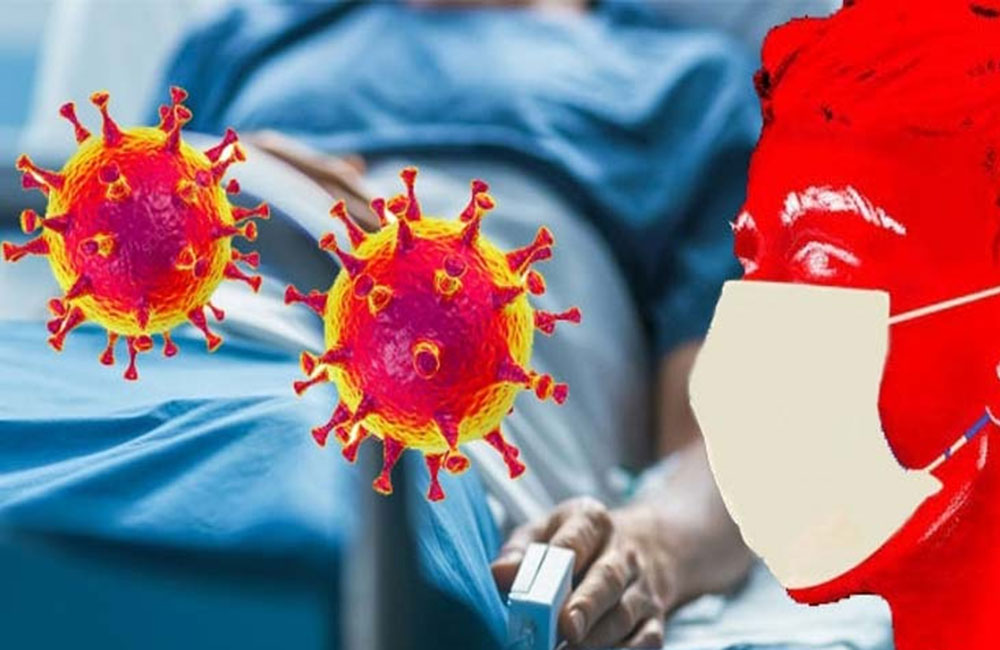
Covid fatalities in sri lanka increases to 15,386
The Director General of Health Services has confirmed another 17 coronavirus related deaths for January 27, increasing the death toll in Sri Lanka due to the virus to 15,386.
This figure includes 10 males and 07 female patients while one of the victims is below the age of 30 years.
Six of the deceased are between the ages 30-59 years while the other 10 are in the age group of 60 years and above.
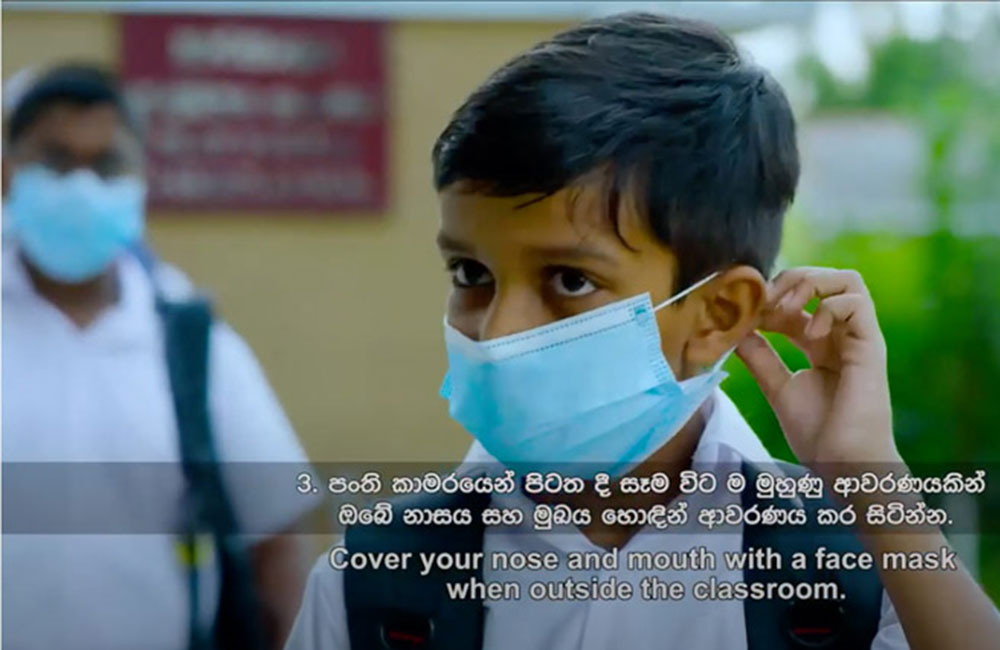
COVID cases being reported from schools – Education Ministry
The Ministry of Education said that reports have surfaced from across the island about students and teachers testing positive for COVID-19.
The Ministry said that it’s constantly monitoring the situation at hand, adding that it hopes to obtain the necessary advice from the Health Ministry on detecting COVID cases and taking necessary measures.
Besides, the Ministry has instructed all education authorities to follow the health guidelines issued.
Deputy Director-General of Health Services Dr. G. Wijesuriya told News 1st that there is an increase in the number of children testing positive for COVID-19.
At the same time, Deputy Director-General of Public Health Services Dr. Hemantha Herath said that a majority of COVID-19 patients currently being reported are those infected with the OMICRON variant.
He went on to note that the number of COVID-19 patients infected with the Delta Variant is also at a similar percentage to the Omicron Variant.
Dr. Hemantha Herath said that over 8,000 PCR tests are carried out daily and NOT all 800+ positive samples are sent for gene sequencing, adding random samples are sent for tests.
He further noted that 5,758 beds are being used at treatment facilities for COVID-19 while 62 ICU beds are also being used for COVID patients.
news1st

Sri Lanka updates guidelines on COVID-19 cases and their close contacts
Sri Lanka’s Health Ministry has updated the guidelines on dealing with COVID-19 cases and their close contacts.
Thus, a person who has been fully vaccinated should not be subjected to home quarantine if they have no symptoms, even if they are Tier-One Close Contacts of an infected person.
They can carry out their daily activities according to the new normal lifestyle and a rapid antigen or PCR test is sufficient only if any symptoms occur.
Only the following groups are considered to have been fully vaccinated.
If you are over 20 years of age, you should have taken both doses and should have completed more than two weeks since the second dose. If one has passed over three months after taking the second dose, a booster dose is mandatory.
Also, according to the new guidelines, if you become infected after the second dose, a month’s gap from the date of infection is sufficient to receive the booster dose.
Children between the ages of 16-19 are considered to be fully vaccinated after obtaining both doses, and completing two weeks since the second dose.
Children between the ages of 12 and 15 are considered to be fully vaccinated two weeks after receiving one dose.
All those who are not fully vaccinated and are considered as Tier-One Close Contacts will be required to undergo home quarantine for 7 days and will be referred for testing if symptoms occur.

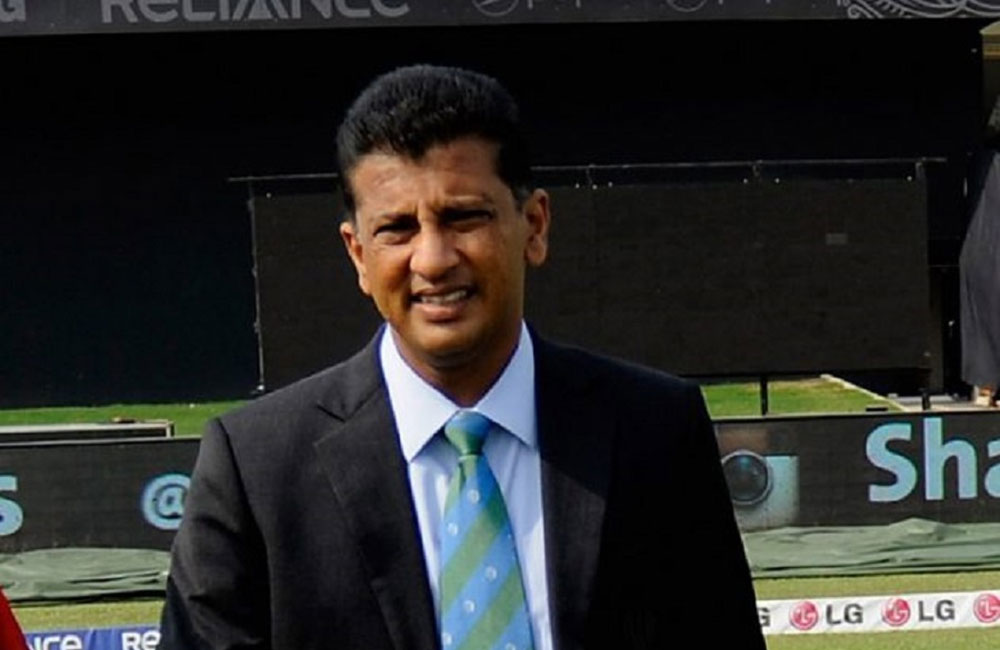
Roshan Mahanama resigns from cricket committee
Former cricketer Roshan Mahanama has resigned from the technical advisory committee on the development cricket in Sri Lanka.
Speaking to Ada Derana, the former ICC match referee said that he has decided not to continue in his role as a member of the Sri Lanka cricket advisory committee with effect from January 21 due to personal reasons.
The four-member Technical Advisory Committee had been appointed by the Minister of Youth Affairs and Sports Namal Rajapaksa for the development of cricket in Sri Lanka, on February 05, 2021.
Chaired by former Sri Lanka batsman Aravinda de Silva, the committee also included former national cricket players Muttiah Muralitharan and Kumar Sangakkara.
The committee had been tasked with working closely with Sri Lanka Cricket (SLC) in order to uplift the standard of cricket both locally and internationally, thereby ensuring and inculcating a sustainable high standard of cricket in the country.
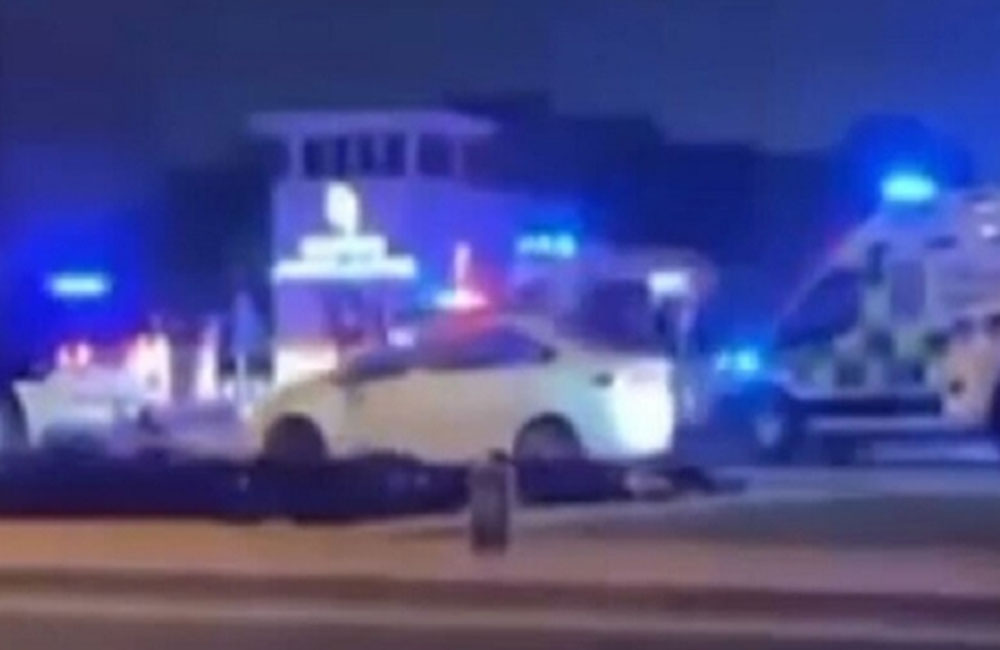
Lankan security guard shot dead in Doha
A Sri Lankan security guard at a residential compound in the Al Waab area of Doha, Qatar was shot dead yesterday (26) by a youth, Doha News reports.
The shooter was a young Qatari man who attempted to enter the compound, together with a female passenger in the same vehicle.
He was denied entry by the security guard for not presenting his ID.
He had then driven away from the compound before returning to shoot the security guard.
According to witnesses, the Sri Lankan and his colleague were shot more than once, and the former died at the scene.
The other security guard was rushed to hospital.
Police arrested the gunman almost immediately after the attack and he has now been referred to the public prosecutor’s office.
The gun used by him was unlicensed and an investigation is underway into how he obtained the weapon.
According to the compound’s residents, the deceased was a father of three and was due to return to Sri Lanka later this year, as his contract was coming to an end.
The local community is raising money to support the victim’s family.
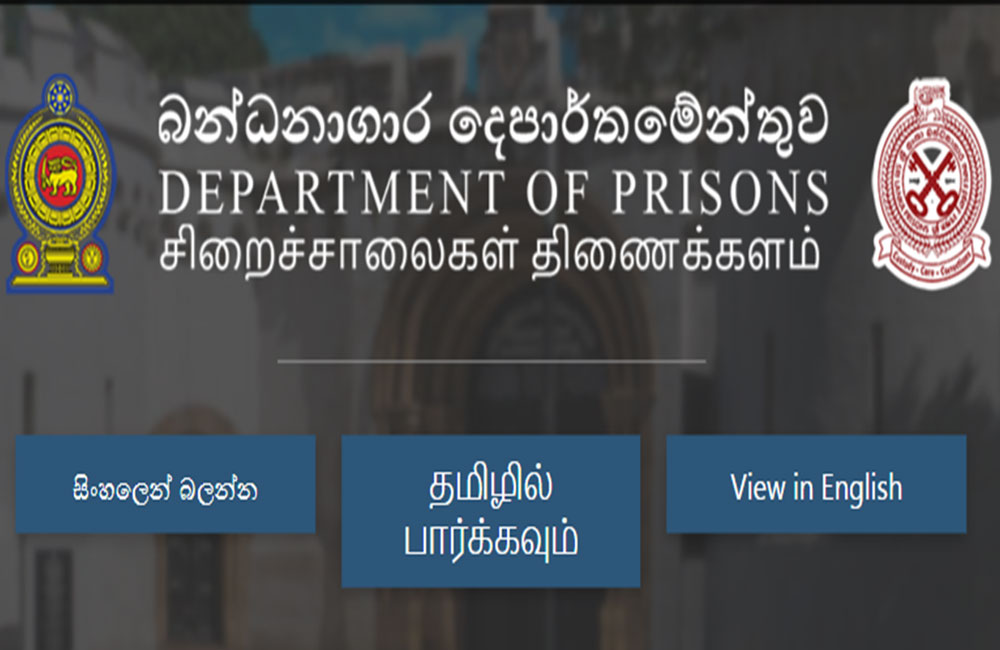
Three jailers interdicted in connection with death of prisoner
Three jailers have been interdicted with immediate effect in connection with the recent death of a prisoners at the Kandurugas Ara open prison camp.
Prison Media Spokesperson Chandana Ekanayake stated that the jailer in charge of the camp, the sergeant jailer and the guard jailer have been interdicted.
The Prison Media Spokesperson Ekanayake added that further investigations are underway into the incident.
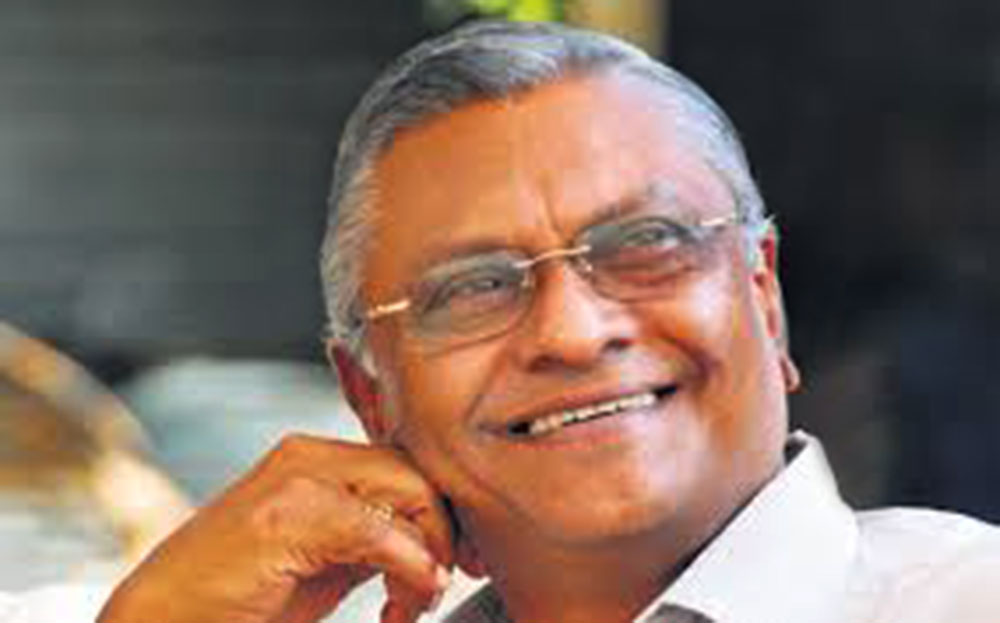
PM has undergone surgery, confirms Chamal while representing PM in Gampola
Sri Lanka’s Irrigation Minister Chamal Rajapaksa stated that the Prime Minister has undergone surgery.
“The PM was to attend an event in Gampola, but was unable to attend due to a surgery,” he told a gathering on Thursday (27).
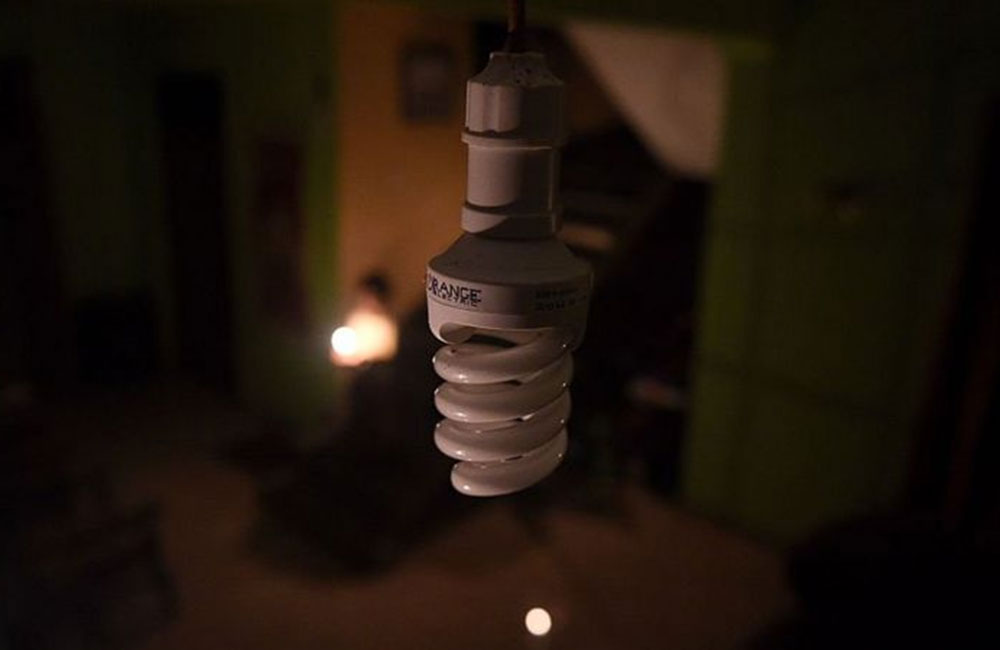
Power cuts likely from Monday (24), warns CEB union
The Ceylon Electricity Board Engineers Association warned that there will be four-phase power cuts with effect from Monday (24).
Dhammika Wimalaratne, the Secretary of the CEB Engineers Association stated that if this fuel shortage continues, steps will be taken to cut off one hour of power on Monday (24) and about two hours of power off the next day.
Accordingly, the power cuts will be taking place between 6.30 and 9.30 in the evening, and under four categories. However, the Engineers’ Association stated that they have not finalized it yet, and if the total number of hours is taken, the power supply will be cut off for nearly two hours from Tuesday (25).
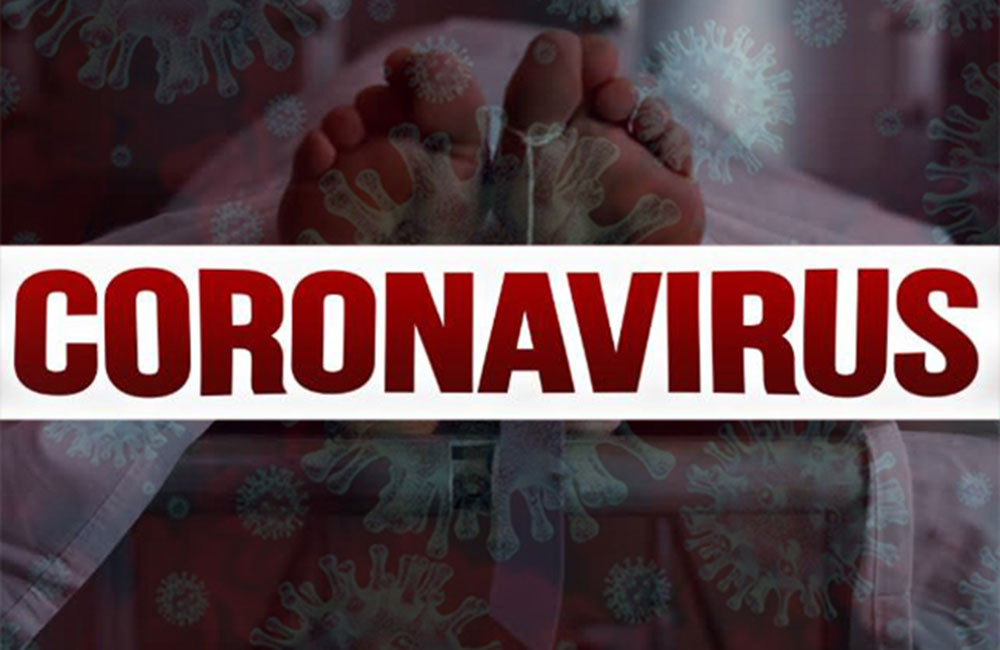
Covid fatalities in sri lanka increases to 15,346
The Director-General of Health Services has confirmed 16 new coronavirus-related deaths for January 25, increasing the death toll in the country due to the virus to 15,346.
This includes 08 males and 08 females, according to the Department of Government Information.
Four of the victims are in the age group of 30-59 years and the remaining 12 patients are aged 60 years and above.
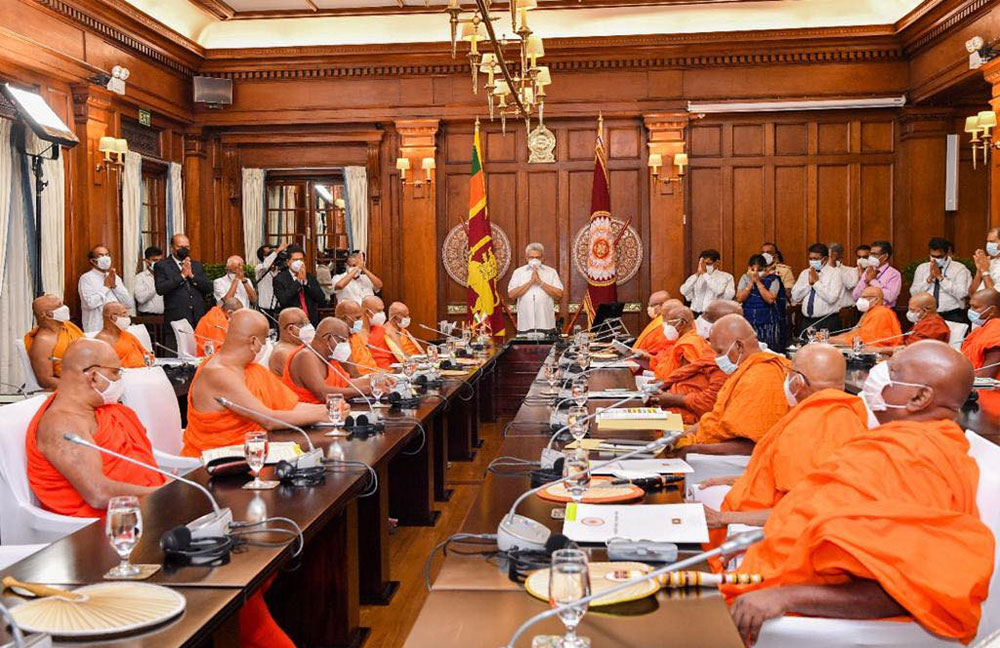
Trust placed in President Rajapaksa hasn’t diminished - Maha Sangha
The results of patient and well-planned decisions are now becoming a reality, the Maha Sangha has said, pointing out that it is the responsibility of all parties to unite to achieve the aspirations of people by placing trust in President Gotabaya Rajapaksa as a visionary and pragmatic leader.
These remarks were made by the Maha Sangha during the 12th meeting of the Buddhist Advisory Council held at the Presidential Secretariat, yesterday (January 21).
The Maha Sangha expressed their views at the Buddhist Advisory Council, appreciating the President’s leadership in protecting the people from the COVID-19 pandemic and rebuilding the country in the face of challenges and economic hardships.
The Maha Sangha pointed out that the trust placed in President Gotabaya Rajapaksa as the only leader who was able to save the country, the nation and the heritage that was deteriorating has not been diminished and that the people should be made aware of the steps taken by the Head of State during the last two years to protect the Kuragala Sacred Area, the Muhudu Maha Vihara and other temples in the North and East.
They also highlighted that it should be the responsibility of the Buddhist Advisory Council to provide factual information regarding the issues faced by the people of the country and to assist the President in finding solutions.
The President said he expects the guidance of the Maha Sangha to adopt laws and on national dialogues. He also stated that as the Sinhala-Buddhist heritage, which was on the verge of extinction, was preserved despite the COVID-19 obstacles, steps will be taken to develop those historic sites while continuing the task to fulfil the aspirations of the majority of the people.
The Maha Sangha, the members of the Buddhist Advisory Council, State Minister Vidura Wickremanayake, Secretary to the President Gamini Senarath, Principal Advisor to President Lalith Weeratunga, Secretaries to Ministries and Government Officials also attended the said meeting.
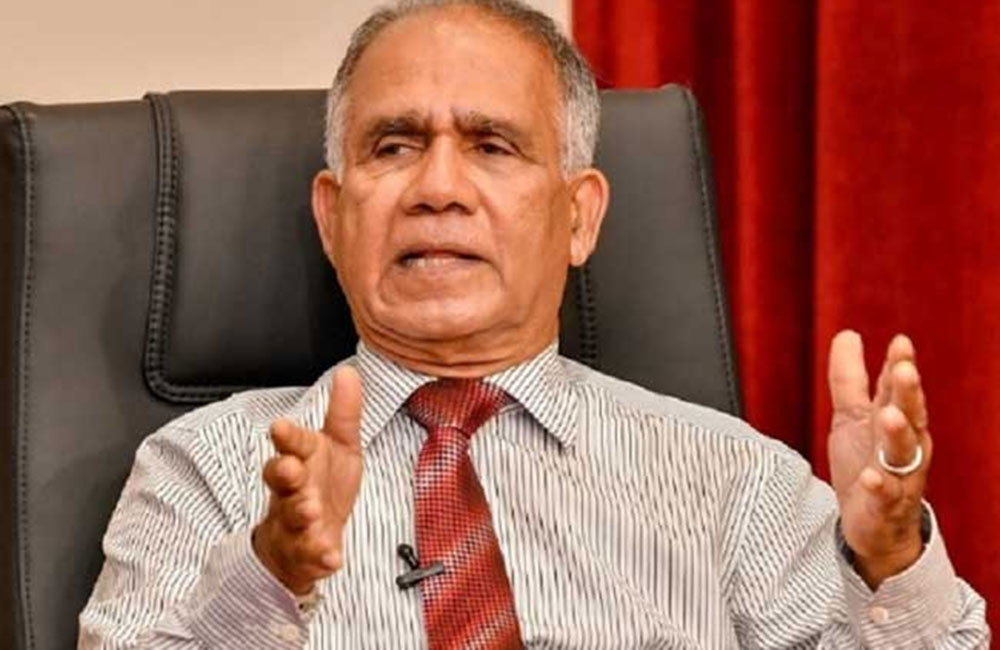
Ceylon Electricity Board Chairman resigns
M.M.C. Ferdinando has resigned as chairman and board member of the Ceylon Electricity Board.
He has cited personal reasons for his resignation, effective from 01 February.
Ferdinando tendered his letter of resignation, dated 26 January, to president Gotabaya Rajapaksa.
His resignation letter is reproduced below:
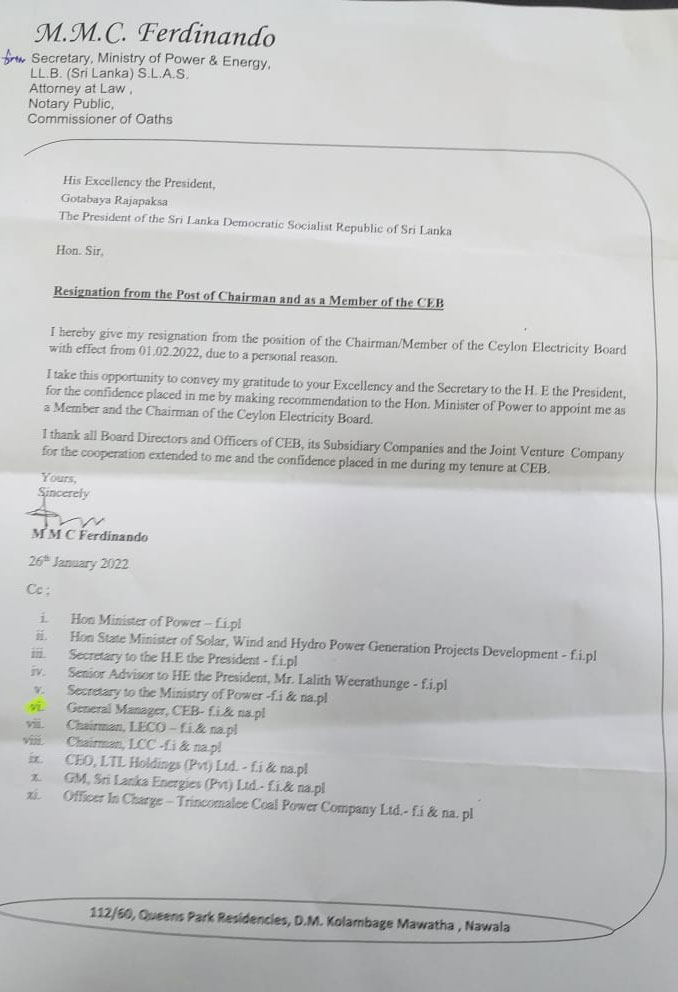
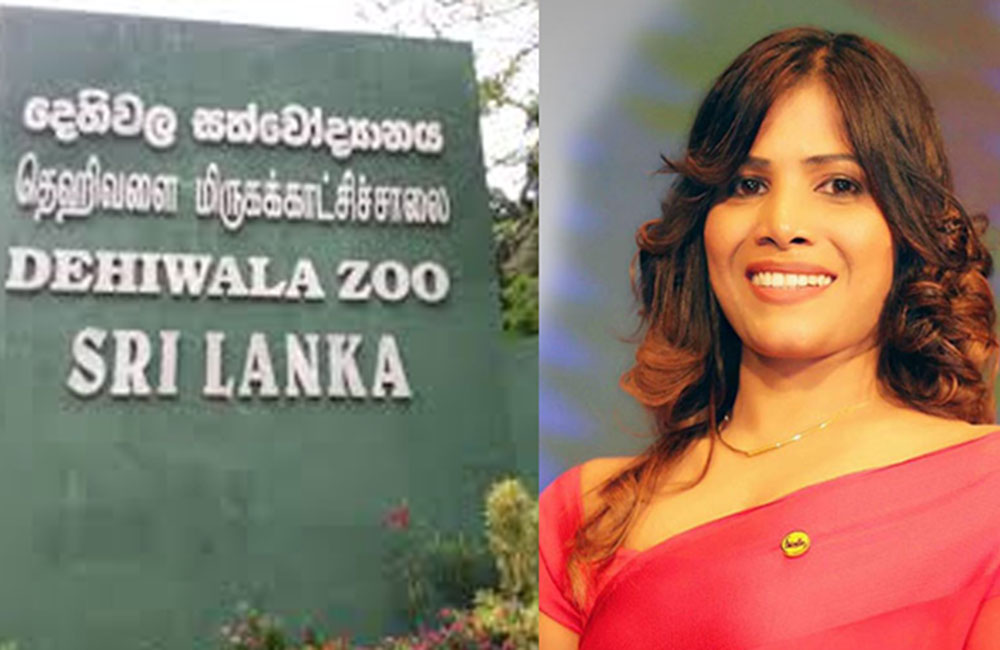
Zoological Gardens Dept’s DG temporarily withdraws from duties
The Director-General of the Department of National Zoological Gardens, Shermila Rajapakshe has temporarily withdrawn from duties, calling for a proper investigation into the employees at the Dehiwala Zoo who had launched a trade union action and engaged in sabotaging activities that threatened the lives of the animals at the premise.
She mentioned in this in a letter directed to secretaries to the President, the Ministry of Wildlife & Forest Conservation and State Ministry of Wildlife Conservation Protection Programmes including Electric Fence and Ditch Construction and Re-Forestation and Wildlife Resources Development.
Calling for an investigation to be conducted within a period of 14 days and to make the environment is conducive to resume duties, Rajapakshe said she would resign from her position otherwise.
Rajapakshe deplored the trade union action launched by a group of employees at the Dehiwala Zoo, which she called “arbitrary and destructive.”
She also said the manner in which these employees behaved in front of the media, displaying lack of discipline and damaging the reputation of the institution, is despicable.
The director-general alleged that these employees had threatened those who did not support the trade union action and carried on their duties. They had also publicized erroneous figures on the deaths of animals at the Dehiwala Zoo and levelled baseless allegations and made derogatory statements towards the institution, its veterinary surgeons and her, Rajapakshe stressed.
Rajapakshe vowed that she would not let these employees to put the lives of the zoo animals in danger.
Page 323 of 660